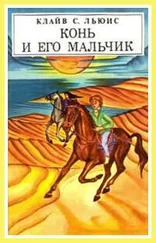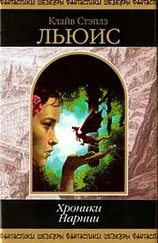| C.S. LEWIS |
Клайв Стейплз Льюис |
| THE HORSE AND HIS BOY |
Конь и его мальчик |
| 1. HOW SHASTA SET OUT ON HIS TRAVELS |
1. |
| THIS is the story of an adventure that happened in Narnia and Calormen and the lands between, in the Golden Age when Peter was High King in Narnia and his brother and his two sisters were King and Queens under him. |
Это повесть о событиях, случившихся в Нарнии и к Югу от нее тогда, когда ею правили король Питер и его брат, и две сестры. |
| In those days, far south in Calormen on a little creek of the sea, there lived a poor fisherman called Arsheesh, and with him there lived a boy who called him Father. The boy's name was Shasta. |
В те дни, далеко на Юге, у моря, жил бедный рыбак по имени Аршиш, а с ним мальчик по имени Шаста, звавший его отцом. |
| On most days Arsheesh went out in his boat to fish in the morning, and in the afternoon he harnessed his donkey to a cart and loaded the cart with fish and went a mile or so southward to the village to sell it. |
Утром Аршиш выходил в море ловить рыбу, а днем запрягал осла, клал рыбу в повозку и ехал в ближайшую деревню торговать. |
| If it had sold well he would come home in a moderately good temper and say nothing to Shasta, but if it had sold badly he would find fault with him and perhaps beat him. |
Если он выручал много, он возвращался в добром духе и Шасту не трогал; если выручал мало, придирался, как только мог, и даже бил мальчика. |
| There was always something to find fault with for Shasta had plenty of work to do, mending and washing the nets, cooking the supper, and cleaning the cottage in which they both lived. |
Придраться было нетрудно, Шаста делал все по дому - стирал и чинил сети, стряпал и убирал. |
| Shasta was not at all interested in anything that lay south of his home because he had once or twice been to the village with Arsheesh and he knew that there was nothing very interesting there. |
Шаста никогда не думал о том, что лежит от них к Югу; он бывал с Аршишем в деревне, и ему там не нравилось. |
| In the village he only met other men who were just like his father - men with long, dirty robes, and wooden shoes turned up at the toe, and turbans on their heads, and beards, talking to one another very slowly about things that sounded dull. |
Он видел точно таких людей, как его отец - в грязных длинных одеждах, сандалиях и тюрбанах, с грязными длинными бородами, медленно толковавших об очень скучных делах. |
| But he was very interested in everything that lay to the North because no one ever went that way and he was never allowed to go there himself. |
Зато его живо занимало все, что лежит к Северу; но туда его не пускали. |
| When he was sitting out of doors mending the nets, and all alone, he would often look eagerly to the North. One could see nothing but a grassy slope running up to a level ridge and beyond that the sky with perhaps a few birds in it. |
Чиня на пороге сети, он с тоской глядел на Север, но видел только склон холма и небо, и редких птиц. |
| Sometimes if Arsheesh was there Shasta would say, |
Когда Аршиш сидел дома, Шаста спрашивал: |
| "O my Father, what is there beyond that hill?" |
"Отец, что там, за холмом?" |
| And then if the fisherman was in a bad temper he would box Shasta's ears and tell him to attend to his work. Or if he was in a peaceable mood he wouldsay, |
Если Аршиш сердился, он драл его за уши, если же был спокоен, отвечал: |
| "O my son, do not allow your mind to be distracted by idle questions. |
"Сын мой, не думай о пустом. |
| For one of the poets has said, 'Application to business is the root of prosperity, but those who ask questions that do not concern them are steering the ship of folly towards the rock of indigence'." |
Как сказал мудрец, прилежание - корень успеха, а те, кто задают пустые вопросы, ведут корабль глупости на рифы неудачи". |
| Shasta thought that beyond the hill there must be some delightful secret which his father wished to hide from him. |
Шасте казалось, что за холмом - какая-то дивная тайна, которую отец до поры скрывает от него. |
| In reality, however, the fisherman talked like this because he didn't know what lay to the North. |
На самом же деле рыбак говорил так, ибо не знал, да и знать не хотел, какие земли лежат к Северу. |
| Neither did he care. He had a very practical mind. |
У него был практический ум. |
| One day there came from the South a stranger who was unlike any man that Shasta had seen before. |
Однажды с Юга прибыл незнакомец, совсем иной, чем те, кого видел Шаста до сих пор. |
| He rode upon a strong dappled horse with flowing mane and tail and his stirrups and bridle were inlaid with silver. |
Он сидел на прекрасном коне, и седло его сверкало серебром. |
| The spike of a helmet projected from the middle of his silken turban and he wore a shirt of chain mail. |
Сверкали и кольчуга, и острие шлема, торчащее над тюрбаном. |
| By his side hung a curving scimitar, a round shield studded with bosses of brass hung at his back, and his right hand grasped a lance. |
На боку его висел ятаган, спину прикрывал медный щит, в руке было копье. |
| His face was dark, but this did not surprise Shasta because all the people of Calormen are like that; what did surprise him was the man's beard which was dyed crimson, and curled and gleaming with scented oil. |
Незнакомец был темен лицом, но Шаста привык к темнолицым, удивило его иное: борода, выкрашенная в алый цвет, вилась кольцами и лоснилась от благовоний. |
| But Arsheesh knew by the gold on the stranger's bare arm that he was a Tarkaan or great lord, and he bowed kneeling before him till his beard touched the earth and made signs to Shasta to kneel also. |
Аршиш понял, что это - тархан, то есть вельможа, и склонился до земли, незаметно показывая Шасте, чтобы и тот преклонил колени. |
| The stranger demanded hospitality for the night which of course the fisherman dared not refuse. |



![Агата Кристи - На краю [английский и русский параллельные тексты]](/books/32247/agata-kristi-na-krayu-anglijskij-i-russkij-paralle-thumb.webp)
![Агата Кристи - Объявлено убийство [английский и русский параллельные тексты]](/books/33247/agata-kristi-obyavleno-ubijstvo-anglijskij-i-russ-thumb.webp)
![Фрэнсис Фицджеральд - По эту сторону рая [английский и русский параллельные тексты]](/books/34130/frensis-ficdzherald-po-etu-storonu-raya-anglijskij-thumb.webp)
![Роберт Шекли - Компания «Необузданные таланты» [английский и русский параллельные тексты]](/books/34808/robert-shekli-kompaniya-neobuzdannye-talanty-angl-thumb.webp)
![Уильям Макгиверн - Завтра опять неизвестность [английский и русский параллельные тексты]](/books/35168/uilyam-makgivern-zavtra-opyat-neizvestnost-angli-thumb.webp)
![Айрис Мердок - О приятных и праведных [английский и русский параллельные тексты]](/books/35170/ajris-merdok-o-priyatnyh-i-pravednyh-anglijskij-i-thumb.webp)